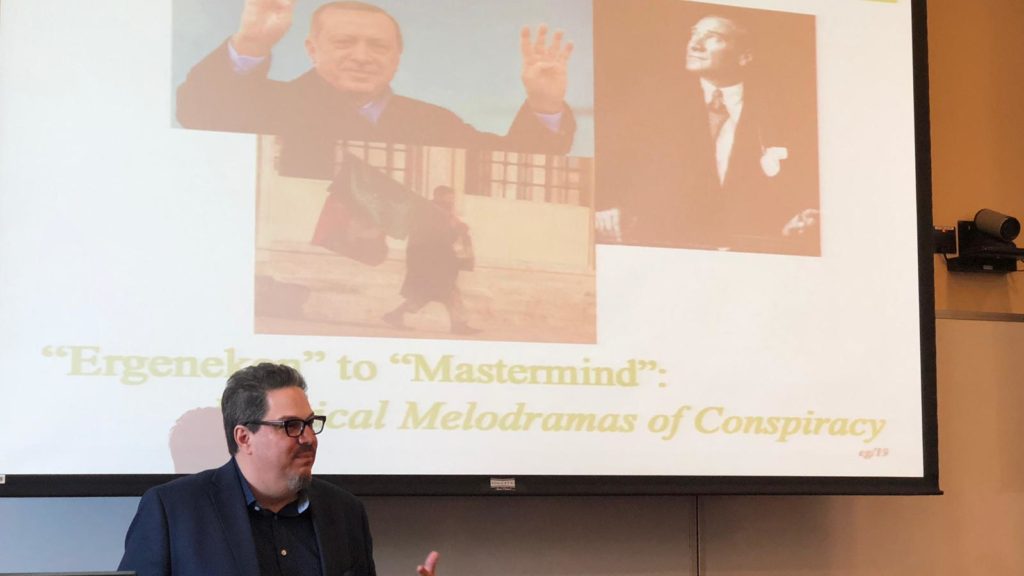Faculty Seminar: From “Ergenekon” to “Mastermind”: Political Melodramas of Conspiracy in Turkey

On April 23, 2019, Dr. Erdag Goknar, Director of the Duke University Middle East Studies Center, discussed his research on conspiracy theory discourse as a political force in Turkish culture and politics at a GU-Q Faculty Seminar moderated by Professor Firat Oruc. In his presentation, titled “From ‘Ergenekon’ to ‘Mastermind’: Political Melodramas of Conspiracy in Turkey,” Professor Goknar explored how conspiracy theories and the role they play in creating political theater is reflected in well-known Turkish novels as a literary trope, and how conspiratorial narratives played a decisive role in domestic politics over several decades of Turkish history.
Inspired by the 2016 presidential election of Donald Trump, Professor Goknar began a comparison of the use of conspiracy narratives in Turkey and the U.S. He recognised several narrative themes in the Turkish context that appeared during the Trump campaign, and that have been carried forward into the presidency, including the “deep state,” the “coup,” the “enemy within,” and in reference to the media, the “enemy of the people.”
He described the modalities through which conspiracy theories are disseminated, and how they serve as a form of political storytelling that function to protect vested interests. Though conspiracy theories—which blend few facts to propel a fiction—can be easily debunked, they have real world outcomes when backed by state power. The aim of the deployment of these narratives is to target the opposition, protect authoritarians, and even encourage political violence, among other functions.
Conspiracism, he explained, is a discursive practice that requires further study, rather than an anomaly to be dismissed.
In addition to his role as the Director of the Middle East Studies Center, Erdag Goknar is also Associate Professor of Turkish and Middle Eastern Studies at Duke University. He is a Turkish-American scholar whose research focuses on the intersection of politics and culture in the Middle East, primarily the late Ottoman Empire and modern Turkey. Through his research, he explores questions of Turkish and Muslim representation in literature, historiography, and popular culture and media.
Faculty Seminars
The GU-Q Faculty Seminars are an annual series in which GU-Q faculty and guests present research in progress and receive feedback from other faculty members. The central goal is to further faculty research by offering opportunities both to present ideas and to learn from the ideas of others from GU-Q, Education City, and beyond.